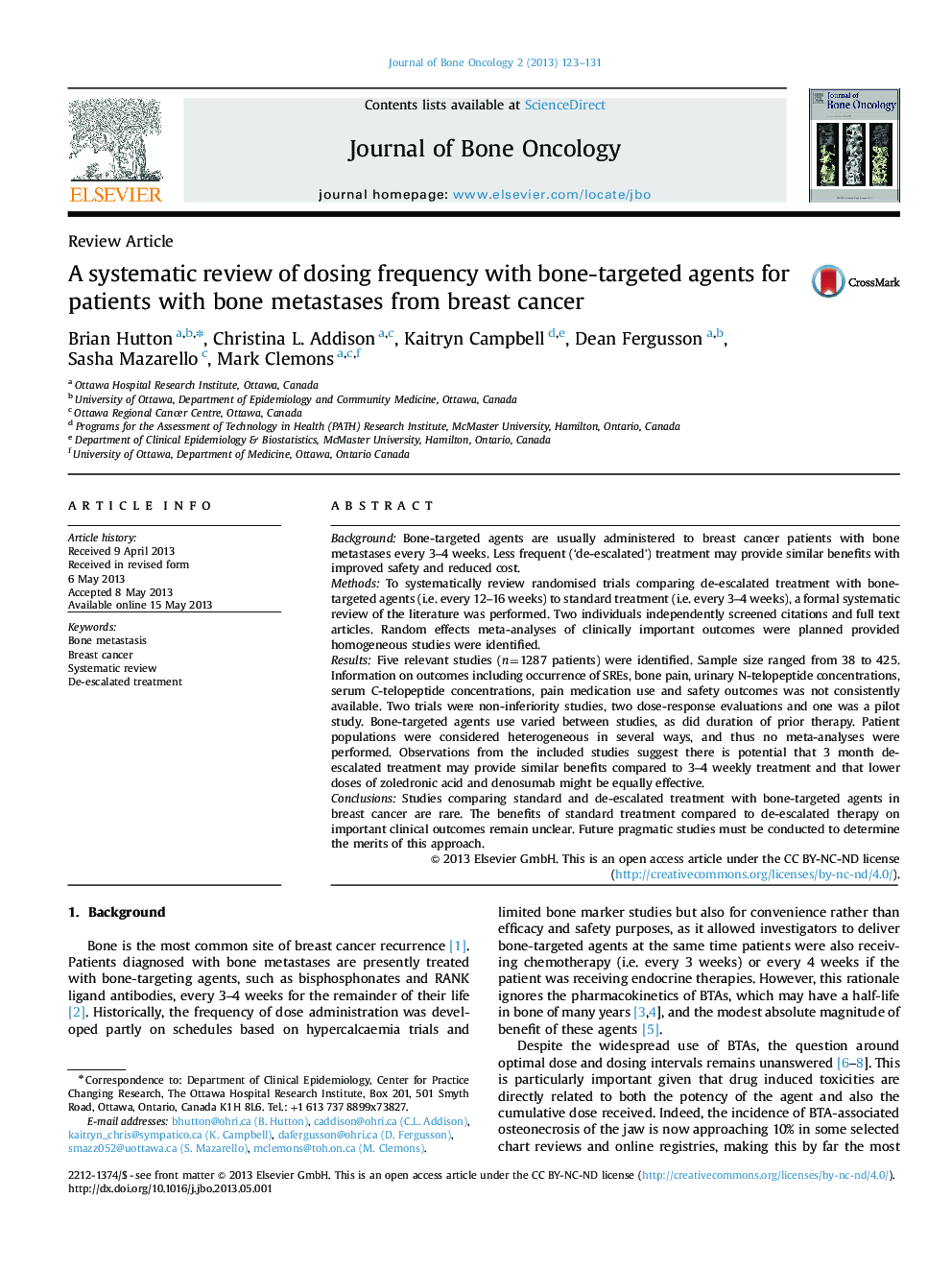| Article ID | Journal | Published Year | Pages | File Type |
|---|---|---|---|---|
| 2136246 | Journal of Bone Oncology | 2013 | 9 Pages |
BackgroundBone-targeted agents are usually administered to breast cancer patients with bone metastases every 3–4 weeks. Less frequent (‘de-escalated’) treatment may provide similar benefits with improved safety and reduced cost.MethodsTo systematically review randomised trials comparing de-escalated treatment with bone-targeted agents (i.e. every 12–16 weeks) to standard treatment (i.e. every 3–4 weeks), a formal systematic review of the literature was performed. Two individuals independently screened citations and full text articles. Random effects meta-analyses of clinically important outcomes were planned provided homogeneous studies were identified.ResultsFive relevant studies (n=1287 patients) were identified. Sample size ranged from 38 to 425. Information on outcomes including occurrence of SREs, bone pain, urinary N-telopeptide concentrations, serum C-telopeptide concentrations, pain medication use and safety outcomes was not consistently available. Two trials were non-inferiority studies, two dose-response evaluations and one was a pilot study. Bone-targeted agents use varied between studies, as did duration of prior therapy. Patient populations were considered heterogeneous in several ways, and thus no meta-analyses were performed. Observations from the included studies suggest there is potential that 3 month de-escalated treatment may provide similar benefits compared to 3–4 weekly treatment and that lower doses of zoledronic acid and denosumab might be equally effective.ConclusionsStudies comparing standard and de-escalated treatment with bone-targeted agents in breast cancer are rare. The benefits of standard treatment compared to de-escalated therapy on important clinical outcomes remain unclear. Future pragmatic studies must be conducted to determine the merits of this approach.
